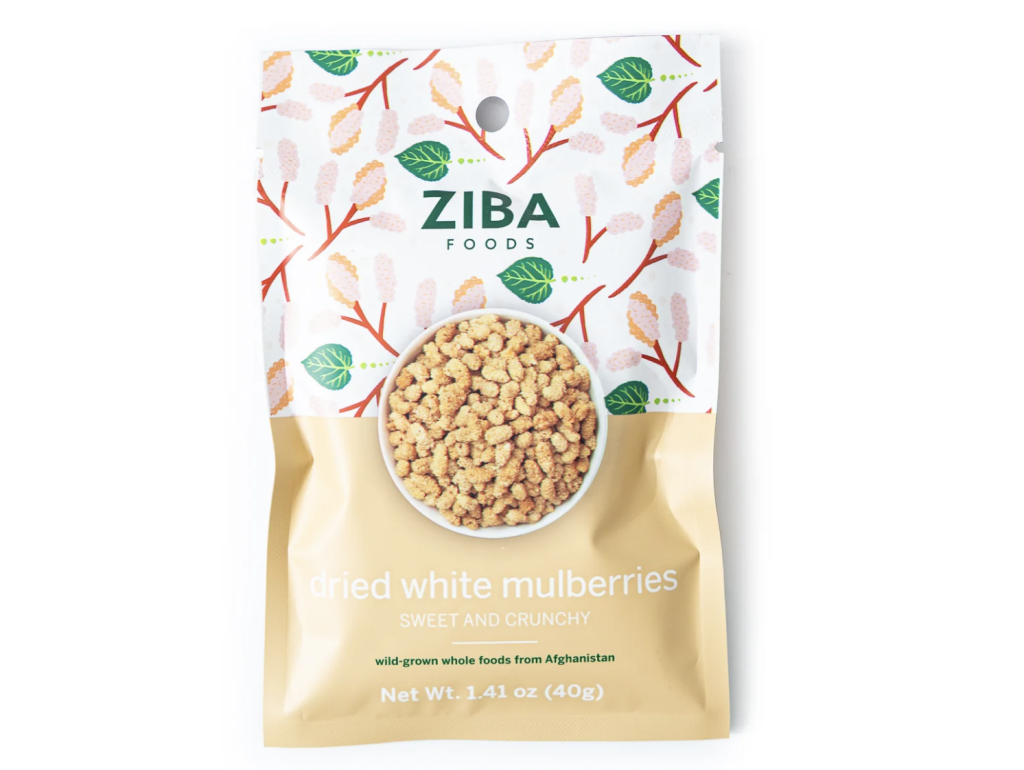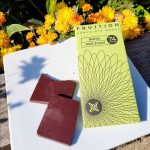Excerpt from Ari’s Top 5 enews
Delicate, hard-to-find fruit is super fine for snacks, salads, and sauces
About a thousand miles to the south and east of the Aral Sea, in the remote regions of Afghanistan, there are a plethora of wild mulberry trees. The trees are, as they were hundreds of years ago, growing essentially unmanaged—unhindered by pesticides or commercial farming methods. That we have them is a rather remarkable feat. The ripe berries are carefully hand-picked each summer and then gently dried to protect the fragile fruit. Thanks to all that work, we have access to one of the tastiest dried fruits I’ve tried in a long time!
The white mulberries come to us through the good work of the folks at Ziba, one of the many wonderful, values-aligned vendors we’re privileged to work with. They practice the spirit of generosity effectively through their work. Ziba pays the over 250 farmers and foragers they work with higher prices for their harvests and they directly employ about 25 Afghan women full-time. Adding in the families of all those people, Ziba is supporting over 3000 Afghans. Those fortunate enough to work with Ziba then have the chance to do the kind of good work I referenced last week—trying to help sustain traditional Afghan agriculture, create leadership work for many women in a setting in which that has become increasingly difficult, and share the literal fruits (and nuts) of their labor with the world.
While the dried white mulberries are not well known in the West, they are magically delicious. In their homeland, these dried mulberries are as common as raisins; here in Ann Arbor, they’ve been almost unheard of—a rare treat to savor out of hand or in baking or cooking. Aside from tasting good, the mulberries have a wide range of health benefits. They’re high in protein, vitamin K1, and also the antioxidant resveratrol, which helps to reduce blood pressure. Smaller and sweeter than most, the Afghan mulberries are recognized as some of the best in the world. Naturally sweet (no sugar is added) and crunchy, they’re great as a snack, baked into granola, or added to yogurt or desserts. You can also sprinkle some onto cereal, oatmeal, salads or, really, anywhere you’d usually use raisins or currants. I like them out of hand where I can appreciate their complex, natural sweetness. The size of a small raspberry, they have a lovely, delicate honey-like flavor with a brilliant crunchy mouthfeel.
Deep appreciation to the foragers and the good folks at Ziba who make it possible for us to enjoy this rare treat and support local economies at the same time.



